Opinion Editorials

Powering Ontario’s Economic Success and Environmental Performance Electricity sector workers in Ontario have a great deal of respect for science. We know that ignoring laws of physics can result in catastrophic outcomes. The Canadian Net-Zero Emissions Accountability Act requires virtual elimination of human-made carbon emissions by 2050. The task is enormous. It will take determination, […]

Made-in-Ontario Electricity Lights the Way for our Environment and Economy The Canadian Net-Zero Emissions Accountability Act, which became law in June 2021, enshrines in legislation Canada’s commitment to achieve net-zero carbon emissions by 2050. The United Nations recently warned that countries around the world are not yet reducing their reliance on oil, gas and coal […]

Canada Needs New Large-Scale Nuclear Generation in Ontario The goal of a circular economy is to “retain and recover as much value as possible from resources by reusing, repairing, refurbishing, remanufacturing, repurposing, or recycling products and materials.” Governments around the world recognize it as a model for tackling the global challenges of climate change, biodiversity […]

Time to Accelerate Building New Low-carbon Nuclear Generation in Ontario For over sixty years, safe, affordable,low-carbon nuclear energy has been the foundation of Ontario’s electricity system and the drivers that made Ontario the center of Canada’s nuclear industry are even more relevant today than they were in the 1950s. Sustaining and growing environmental and economic […]

Time to Put Ontario’s Planning for Low-Carbon Energy Security into High Gear The impacts of a “once in a generation” North America-wide storm and continuing geopolitical conflicts provide stark reminders of the growing importance of low-carbon energy security. Without it, governments around the world recognize the impossibility of achieving net zero, critical for the fight […]

Nuclear Energy is Ontario’s Best Option for Achieving Net Zero and Long-term Economic Prosperity Ontario’s low-carbon nuclear energy foundation has been stimulating eco-nomic growth for decades – well be-fore climate change became the issue it is today. It’s a solid, proven domestic technology with assets, infrastructure and expertise worth leveraging to ensure long-term, low-carbon energy […]

PWU Opinion Editorial: Ontario Needs a Long-term Energy Plan That Will Take Us To Net Zero On Thursday, November 17th – the Power Workers’ Union released an Opinion Editorial in both the Globe and Mail as well as the Toronto Star. The Editorial spoke towards the essential need for new, large-scale nuclear generation, to […]

Daily, we’re bombarded with information about the complex, dangerous challenges our world is facing and how best to address them. One of the most pressing involves climate change and how we mitigate/adapt to it while sustaining and creating good jobs, growing the economy and ensuring a decent standard of living for all. This is why Canada’s nuclear industry needs a plan that prepares our youth with the right education, skills and experience for the jobs it has to off er. The plan must also ensure a robust nuclear industry that can provide good-paying, long-term employment opportunities well into the future.
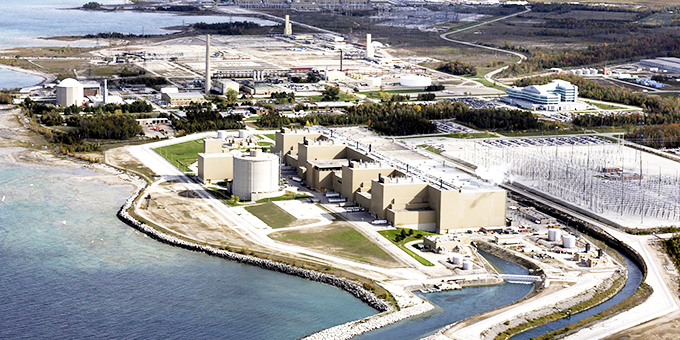
During the past months, Ontario has been focused on attracting jobs and investment to the province. Clearly, the proceeding refurbishment of our province’s ten nuclear reactors over the coming decade is demonstrating the benefits delivered by this clean, Ontario energy advantage. Taking the necessary steps to build new “made in Ontario” reactors today, is the best way to sustain these benefits in the future.
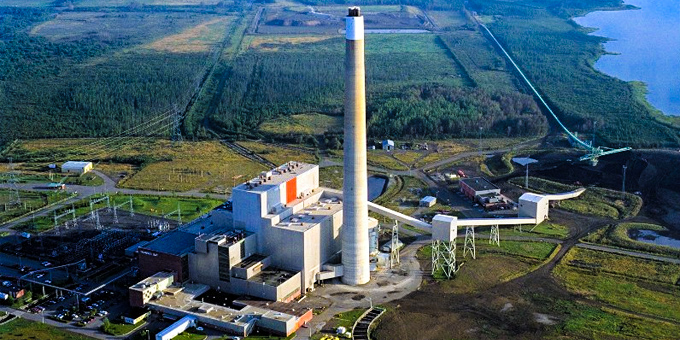
Over the last several weeks, Ontario’s government has been consulting about its “Open for Business” strategy and related energy, environmental and business policies. The outcomes are critical to Ontario’s future energy security and economic competitiveness.
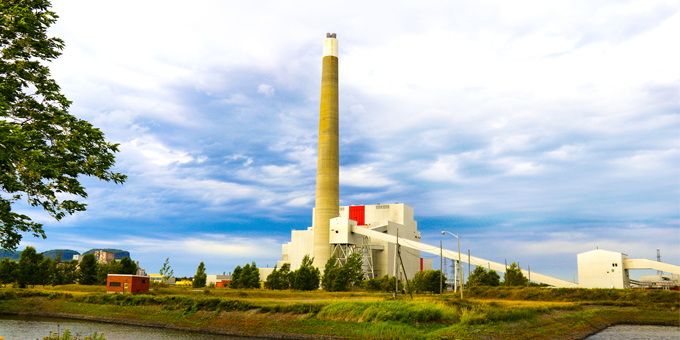
The Thunder Bay Generating Station (GS), the world’s largest generating station to be converted from coal to advanced biomass,
is being closed.
In 2024, Atikokan GS, North America’s largest generating station to be converted from a coal to 100% carbon-neutral white pellet biomass, could also close. Both stations underpin the region’s …

By Mel Hyatt, President, Power Workers’ Union Since 1946, the Power Workers’ Union (PWU), a proudly Canadian union, has helped keep the lights on in Ontario. Our dedicated membership of 16,000 men and women work in all parts of Ontario’s electricity system – operating and maintaining generation, transmission, distribution and control functions. Our membership has […]
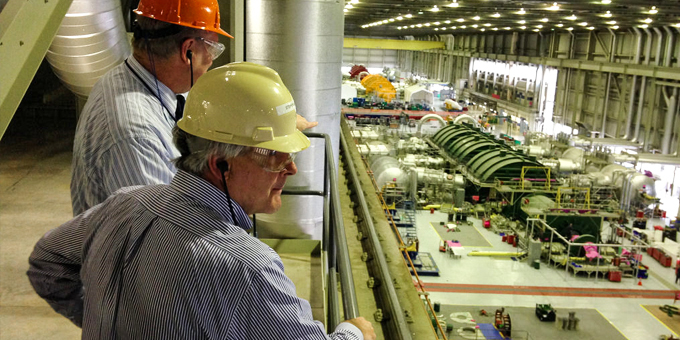
By Mel Hyatt, President, Power Workers’ Union. The 2017 Annual Greenhouse Gas Progress Report from the Environmental Commissioner of Ontario (ECO) acknowledged the significant role that the province’s nuclear fleet had played over the last decade reducing electricity sector Greenhouse Gas (GHG) emissions. The ECO’s Report noted that further reductions from this sector are “nearly […]

By Mel Hyatt, President, Power Workers’ Union. The federal government recently released the results of a June 2017 public survey on energy and resource development. Results suggest that public support for nuclear energy still occupies the basement at 45% compared with solar and hydro, with numbers more than double that of nuclear. Wind is next […]

By Mel Hyatt, President, Power Workers’ Union. Ontario’s recently released Long-Term Energy Plan (LTEP), Delivering Fairness and Choice, sets some ambitious consumer-focused goals including making energy more affordable and giving consumers more choices. The scope and complexities of the Plan suggest it will be challenging to achieve these goals. Fortunately, Ontario has already made some […]

By Mel Hyatt, President, Power Workers’ Union. In today’s world, sustaining environmental and economic prosperity depends on the delivery of environmentally responsible, reliable and secure supplies of energy to homes and businesses at an affordable price. No one solution fits all. In large part, achieving these outcomes depends on leveraging the inherent and proven energy […]
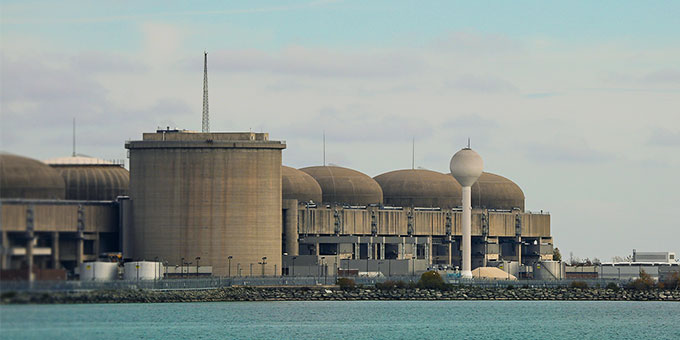
By Mel Hyatt, President, Power Workers’ Union. Canadians soon will learn more about Canada’s “clean tech” plans and Ontario’s newest Long-Term Energy Plan. Both levels of government appear to be captivated by new emerging technologies like energy storage, distributed energy resources and microgrids. Their promoters present them as the best way of further electrifying and […]
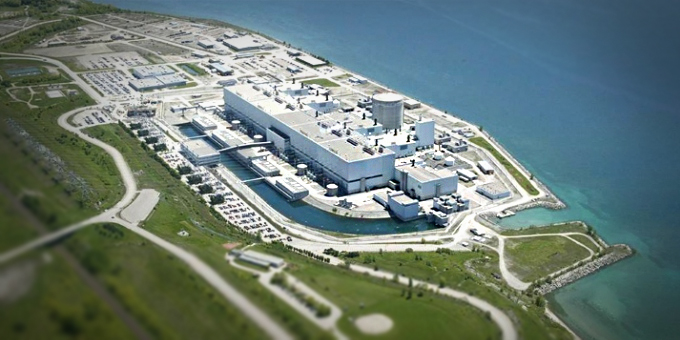
Power Workers’ Union On August 8th, Montreal’s La Presse newspaper, reported that Hydro-Québec and Ontario were finalizing a historic 20-year power exchange agreement. Ontario’s Ministry of Energy subsequently issued a statement describing the report as inaccurate and incompatible with Ontario’s core objectives. Ontario’s Energy Minister requires that future agreements with Quebec meet 3 principles. Any […]

Every year the Workplace Safety Insurance Board (WSIB) releases statistics regarding workplace fatalities and accident claims from the previous year. Unfortunately, the statistics are not providing a record of progress. Why is it that every year in Ontario, between 200 and 300 workers lose their lives as a result of traumatic workplace accidents and occupational […]

On Thursday, December 8th the Ontario Energy Board (OEB) issued its decision regarding the Merger Application that would combine four local distribution companies – PowerStream, Enersource, Horizon Utilities and Hydro One Brampton into the second largest distribution company in Ontario – second only to Hydro One. The decision stated, “The OEB concludes that the proposed amalgamation of […]
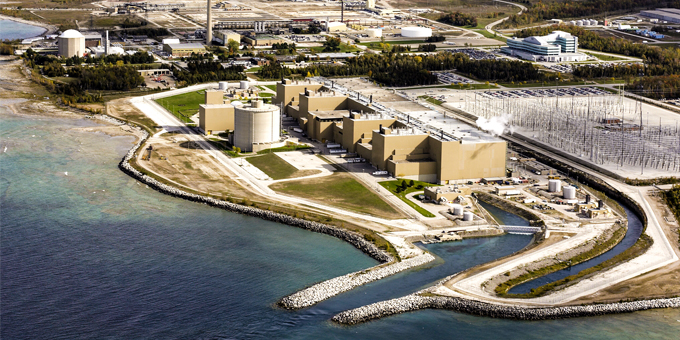
By Don MacKinnon, President, Power Workers’ Union The Ontario government’s support for extending the operation of the Pickering Nuclear Generating Station by four years to 2025 and the refurbishment of the Darlington and Bruce Nuclear Stations is good news for the province’s environment and economy. These investments are clear evidence of the province’s continuing commitment to achieving: […]

Toronto –13, July, 2016 –The Power Worker’s Union (PWU) has released a study by Strategic Policy Economics (Strapolec) that demonstrates increasing firm electricity imports from Quebec would be an imprudent and expensive option for Ontario. Historically, Ontario has exported and imported significant amounts of electricity to and from Manitoba, Quebec, Michigan and New York. Such […]
Recent announcements by the Federal and Ontario governments demonstrate our decision-makers are increasingly recognizing the environmental and economic benefits of electric vehicles (EVs). Powering zero-emission vehicles with domestically produced, clean, low-carbon electricity is the best way to reduce greenhouse gas emissions (GHG) and smog causing pollutants from Canada’s largest emitting sector – transportation. It is […]
Monday’s anti-Pickering Nuclear Station Extension editorial diatribe by the Ontario Clean Air Alliance (OCAA) is typical of their “dreamweaver”-like campaigns — heavy with the spectre of environmental disaster and fast and loose with the facts. The Pickering Nuclear Station is licensed and its operations, including emergency preparedness, are overseen by the Canadian Nuclear Safety Commission […]
According to the Workplace Safety Insurance Board (WSIB) statistics, every year in Ontario, 250 to 300 workers lose their lives as a result of traumatic workplace accidents and occupational illnesses. In 2014, almost 200,000 accident claims. Read more View as PDF
Ontario’s recent biomass investments in the Thunder Bay area recognize the significant economic and environmental benefits this energy source delivers and better positions our province to compete in the rapidly emerging global bio-economy. The European Union (EU) developed its first biomass strategy in 2005 citing improved energy security, job creation, innovation and lower greenhouse gas […]
The Ontario government’s announcement supporting the extended operation of the Ontario Power Generation (OPG) Pickering Nuclear Generating Station by four years to 2025 is good news for the province’s environment and economy. This latest statement is further evidence of the province’s continuing commitment to achieving more greenhouse gas (GHG) emission reductions, securing a long-term, Ontario-based […]
Ontario’s nuclear industry supports a strong economy and provides low-cost electricity for families and businesses. Nuclear power meets over half of Ontario’s electricity needs 24 hours a day, seven days a week, providing families and businesses with a reliable source of affordable electricity. Our nuclear fleet is part of a balanced supply mix in the […]
Greenhouse gas emissions (GHG) from Ontario’s electricity sector are expected to more than double from 2014 levels, and could negate the reductions already achieved by closing the province’s coal stations. Ontario’s growing dependence upon carbon-emitting natural gas-fired generation in the next decade is particularly concerning as more and more of this fuel comes from […]
Following re-election, Premier Wynne signalled her intention to aggressively tackle climate change. In a Mandate letter, Minister Murray, of the newly named Ministry of Environment and Climate Change, was directed to see climate change was incorporated into government decision-making, and to work with other ministries to develop a long-term provincial climate change strategy and a […]
According to the Workplace Safety Insurance Board (WSIB) statistics, every year in Ontario, 250 to 300 workers lose their lives as a result of traumatic workplace accidents and occupational illnesses. In 2013, 194,393 accident claims were filed with the Ontario WSIB. All of those killed and injured were ordinary people working to make a living […]
Today’s decision-makers are faced with the challenges of sustaining and creating jobs while tackling climate change. Concurrently, energy security has assumed greater importance as developing economies compete for non-renewable, carbon-emitting fossil fuels. A cacophony of special interests advocating the merits and benefits of their preferred energy solution(s) add another layer of complexity. In Ontario’s case, […]
In August, political discussions about the need for a national energy strategy resurfaced. The Premiers of Ontario and Quebec ― motivated by the desire to increase trade and cooperation, address climate change and build new infrastructure ― talked about energy trade including the possibility of more electricity imports from “La belle province”. Eight days later […]
Sometimes we get so used to our institutions we forget how important they are to us. We take democracy for granted in Canada, but a moment’s thought about life in countries without it should be enough to convince you of the importance of a democratic political system. Absent democracy, “might makes right” – tyranny and […]
This year’s long, cold winter underscores the risks of Ontario’s increasing dependence on natural gas to meet our energy needs. Prolonged periods of frigid weather across North America increased natural gas consumption for both home heating and electricity generation. In turn, this drove the cost of natural gas higher, as evidenced by the 40 percent increase in the price […]
Ontario’s energy policy makers share a common challenge: ensuring that our homes, businesses and industries continue to have clean, reliable and affordable electricity into the future. How do we best achieve this outcome? The planned mid-life refurbishment of six nuclear units at Bruce Power and four at Ontario Power Generation’s (OPG) Darlington site is good […]
The December 2013 ice storm that impacted 600,000 electrical utility customers in Ontario reinforced two key axioms about our electricity supply. First, we were all reminded of the indispensable role that electricity plays in everyday life. Second, we can rely on the skills and commitment of the men and women who worked tirelessly to restore […]
Manufacturing is a major contributor to Ontario’s economy. Of the 1.7 million Canadians employed in this sector, nearly 800,000 live in Ontario. In 2011, Ontario’s manufacturers shipped more than $258 billion in goods. The output from the Ontario production facilities for five of the world’s largest automotive companies accounts for 15.2 percent of our province’s […]
In the coming weeks, Ontario is expected to release its latest Long-Term Energy Plan (LTEP). Recent media reports suggest that Ontario will not build two planned new nuclear reactors at Darlington and is considering cutting back on planned refurbishments of the operating units at Darlington and Bruce Power. The justification is allegedly to help curb […]
In the coming weeks, Ontario is expected to release its latest Long-Term Energy Plan (LTEP). Recent media reports suggest that Ontario will not build two planned new nuclear reactors at Darlington and is considering cutting back on planned refurbishments of the operating units at Darlington and Bruce Power. The justification is allegedly to help curb […]






